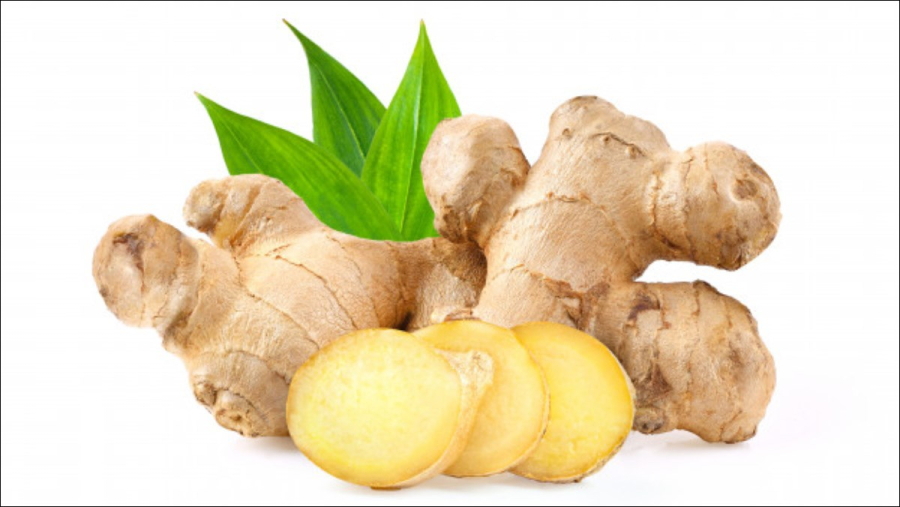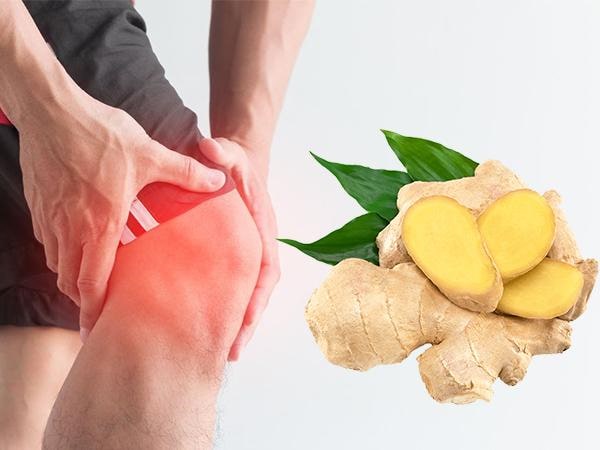Ginger is considered an indispensable ingredient in our kitchen because of its distinctive flavor and high applicability. Based on the knowledge of traditional medicine, ginger has a strong aroma, slightly spicy, and warm characteristics, which affect the three main meridians of the Lungs, Spleen, and Stomach. It brings many benefits such as dispelling cold, reducing flu symptoms, keeping the stomach warm, controlling nausea, soothing coughs, resolving phlegm, and even detoxifying. The intense spiciness and warmth of ginger are factors that make it an important part not only in cooking but also in health care according to traditional methods.
Containing compounds like gingerol and shogaol, ginger has strong anti-inflammatory and antioxidant properties. These compounds help reduce nausea, alleviate muscle pain, and even help fight infections. Additionally, incorporating ginger into daily eating habits is simple and convenient.

Here are some methods of using ginger to prevent and treat various conditions:
Ginger tea for cold and nausea prevention
A simple way to take advantage of the benefits of ginger is to make it into tea. Simply chop or crush a slice of fresh ginger, then boil it with water for 5 to 10 minutes. Add a little honey or a few drops of lemon extract to enrich the taste of the tea.
Drinking this ginger tea can relieve symptoms of stomach pain, reduce nausea, and support in combating the flu.
Chewing ginger slices supports digestion
Ginger is highly regarded for improving digestive issues. Try chewing a few thin ginger slices before eating to stimulate digestion and reduce bloating. Thanks to its natural enzymes, ginger has the ability to break down food, reduce discomfort in the stomach, and support effective digestion.

Use ginger as a spice to enhance the immune system
Ginger, with its abundant antioxidants, brings great benefits to the immune system. Using ginger as a seasoning in cooking or consuming it as ginger water can help prevent various diseases. Additionally, ginger’s anti-inflammatory properties are beneficial for maintaining joint health and minimizing the risk of infection.
Ginger mouthwash soothes sore throat
In case of a sore and irritated throat, using ginger can help alleviate such discomfort. Combine warm ginger water with honey to prepare a throat gargle solution. The natural antibacterial components in ginger help reduce pain and prevent bacterial growth.
Apply ginger-infused compress to relieve muscle pain
Ginger, with its remarkable anti-inflammatory property, can effectively reduce muscle pain. You can make a ginger patch by soaking a clean piece of cloth in warm ginger water and applying it directly to the sore area.
This method can naturally minimize aches and pains, which is very helpful after intense workouts.

Notes when using ginger
– The consumption of ginger should not exceed 5 grams per day.
– Ginger is not suitable for those who are undergoing or preparing for surgery.
– Avoid using ginger when experiencing conditions such as nosebleeds, bleeding gums, heavy menstrual flow, or coughing up blood.
– In principle, ginger is not recommended for patients with internal bleeding disorders or those undergoing treatment with blood-thinning medications such as aspirin or warfarin.
– Individuals experiencing excessive sweating or feeling hot should refrain from using ginger.
– When using ginger externally on the skin, it is necessary to test it on a small portion of the skin to check for any allergic reactions, and avoid prolonged contact with ginger on the skin to prevent burns, especially for sensitive skin.
– Ginger should be washed thoroughly without peeling it because the peel also contains beneficial nutrients.





































